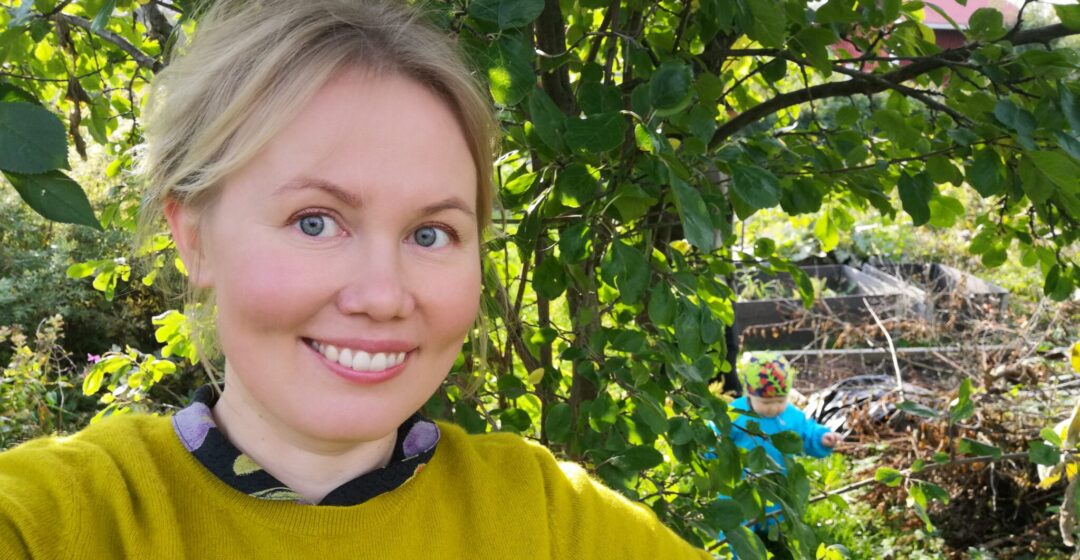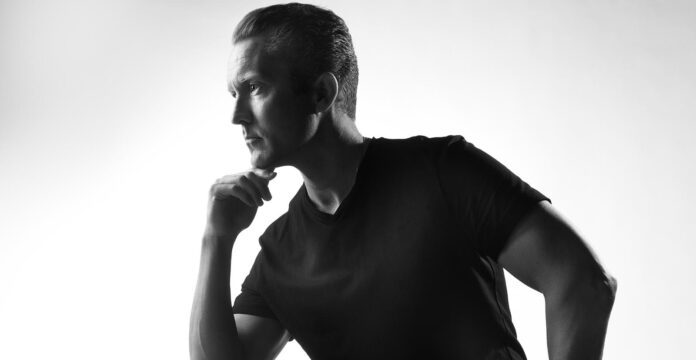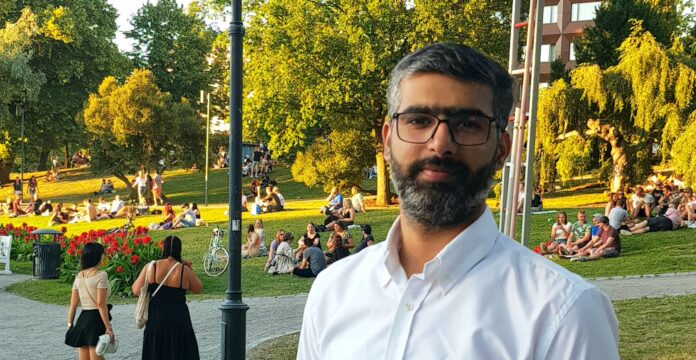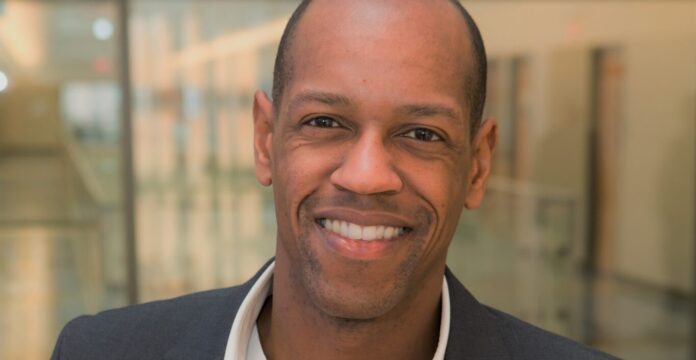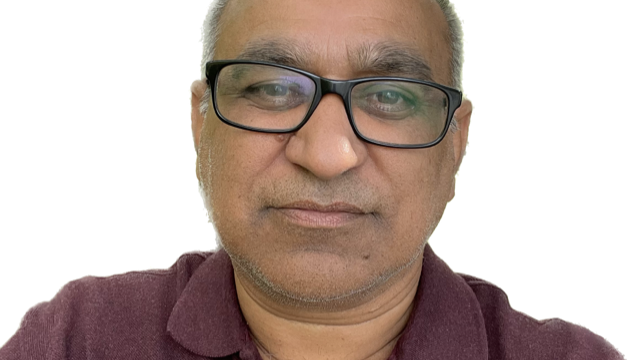Image: “This picture was taken in our allotment garden, a little getaway place just 15 minutes bike ride away from where we live.”
This series introduces the members of University of Vaasa’s InnoLab research platform. Today we’re meeting Sanna Tuurnas.
What are you?
I am quite many things and contradictions. I am always up for an adventure but keep my feet steady on the ground. I am sensible and pragmatic, but also silly and a bit bohemian. I am both calm and impatient; I am an aesthete who finds things like concrete jungles and decaying industrial sites appealing. As for less contradictory parts, I am the mum of a little boy and an eager free-time gardener. I am also an academic operating in the field of public management and administration, with an interest in questions pertaining to the ‘collaborative society’.
Your title at the University of Vaasa is assistant professor in public management, but what exactly do you do?
Put it simply, I do research and teach. Beyond this, I apply for research funding with my colleagues, sometimes give talks and presentations to non-academic audiences and take part in many kinds of academic activities, like organizing conferences and seminars. For instance, our team from the University of Vaasa and Tampere University are currently organizing The Conference on Administrative and Local Government Studies, held online on 11.-13.11.2020. In addition to teaching courses (currently I run a course on strategy management in public sector), my work includes supervising and instructing on Bachelor’s, Master’s, and PhD theses.
My work is situated at the School of Management, but I’m also affiliated with InnoLab through the LähiöInno project. The project is part of the national suburban development program and brings together people from InnoLab, Regional Studies and Public management. We study and develop place-based innovations in two suburban areas (Ristinummi and Olympiakortteli) in Vaasa through different co-creation methods. I am especially interested in studying interaction between actors and therein seeking answers to questions like “what is the perceived value of collaborative processes”, and “how do we decide what is a valuable outcome overall?” In addition to this, I am currently writing various academic articles with colleagues from Aalborg, Haifa, Leuven, Tampere and Vaasa. These co-authored studies focus on the role of third sector organizations in public sector reform, professionalism and public value in co-production, and knowledge co-creation in suburban settings. We have also just launched a book project with colleagues from Tampere University.
All in all, I get excited easily and therefore I am usually involved in many things. The variety of tasks makes the days different and keeps me going, as long as I remember to keep the number of projects manageable.
Sounds like a lot of work. Why bother?
Many reasons to bother, really! For instance, it is a privilege to instruct undergraduate and graduate students on their first research activities. They will be the future civil servants and top-managers in different levels of government and non-governmental organizations. Helping them formulate an understanding of organizational realities, and especially the management of those realities in the public sector, is an important task.
In research, my motivation is to understand what goes on in public organizations that make important decisions on our behalf (and with us, as I hope!), and which take care of our families and us. Public organizations are truly fascinating, as they need to take into consideration so many different stakeholder viewpoints, follow democratic principles and create public value. I also really love to work with brilliant colleagues from all over the world.
All right, but how did you end up where you are now?
I am fairly new to Vaasa, I started in this post in January 2019. Before that, I was on maternity leave for a while; before that, I worked as post doc at the University of Leuven in Belgium; and before that, I was a post doc in a research collegium, the Institute for Advanced Social Research at the University of Tampere, for a year. Before that, I worked as a senior lecturer of local governance at Tampere, also for a year. So, this is my post-doctoral career since 2016 when I finished my PhD: I have worked in different research environments, and all these environments have been very valuable as personal and academic experiences. After being here and there for some years, I wanted to have something a bit steadier. Vaasa had already been an appealing opportunity in my mind, so when there was an opportunity to apply for this job as an assistant professor, I took the chance and here I am. I feel I am in the right place, having a very dynamic, versatile and nice group of colleagues to work with.
Imagine your phone rings. It’s the call you’ve been hoping for – what is it about?
This would be one of my colleagues telling me that we’ve got a big grant for starting a Europe-wide study on the forms of collaborative governance. We would gather comparative data and try out experimental methods in cross-country settings. We would have at least some five years to complete the study, and this funding instrument would require only very little reporting. There would also be enough money for hiring PhD students and for international mobility.
Just kidding, it’s actually a journalist. They’re finally doing a story on that one topic you’ve always wanted to give an interview on! What do you say?
I would talk about the idea of partnerships between civil society and public organizations, such as municipalities, and how the partnerships are actually working. There is a lot of potential in these kinds of arrangements, but also many hurdles. For instance, I think that public organizations do not always do justice to the work that NGOs do for the well-being of citizens and environment.
Good job. Too bad you can’t be the resident expert on every topic. What would you like to learn more about?
I would like to learn about so many things: How to make a killer project application? How to apply different methods in research and in teaching? As for non-academic issues, I would really like to learn more about gardening. My long-term dream would also be to learn French, but at the moment I do not feel I have the capacity to learn a new language. Maybe someday!
Sounds useful. Is that something I, too, should pick up?
As for the academic learning points, I would say we are never ready in this field. There is always new issues to learn about theories, methods, writing. As for gardening, it is wonderful to grow your own food and see seeds becoming flowers, although it takes years and years to learn what grows where and how and when, and what kinds of plants exist overall. Gardening is a great patience exercise (so is learning French, I guess!).
Okay. Now recommend me something – anything!
I recommend you go and have a nice lunch with your colleagues. (If the covid situation just allows you to). Good food makes the day.
Any last advice for being both an effective researcher and a happy office worker?
Make sure you don’t get hungry (also related to the previous question), talk with your colleagues, always remember that it is OK to fail, too.
From the perspective of Sanna’s colleagues: what makes you value Sanna as a coworker?
“Sanna exhibits a perfect blend of kindness and critical thinking sprinkled with an intense co-production flavor.”
“She is open and sunny, and brings joy to your day :)”
“Sanna is a trusted and inspiring colleague. She delivers what she promises and combines deep knowledge, professionalism and open mind in a very inclusive and positive way.”
